|

On eBay Now...
[Underground Railroad] American Hotel Journal Signed By Seward, Abolitionists For Sale
![[Underground Railroad] American Hotel Journal Signed By Seward, Abolitionists [Underground Railroad] American Hotel Journal Signed By Seward, Abolitionists](img-large/g/9rAAAOSw4GhmM9NU/s-l1600/-Underground-Railroad-American-Hotel-Journal-Signe.jpg)
When you click on links to various merchants on this site and make a purchase, this can result in this site earning a commission. Affiliate programs and affiliations include, but are not limited to, the eBay Partner Network.

[Underground Railroad] American Hotel Journal Signed By Seward, Abolitionists:
$495.00
Approximately 90 pp, 8 x 12 ½, 1835 American Hotel journal, which includes a sheet in the front, signed by 35, including the important WILLIAM SEWARD, future Secretary of State for Presidents Abraham Lincoln and later Andrew Johnson. Seward was nearly assassinated as part of the conspiracy to take down the Lincoln government and replace it with a Confederate government. Those signing this sheet on November 25, 1829, stated their purpose was to “agree to pay THOMAS NOYES Seven dollars in consideration of his furnishing cotition (cotillion) parties with the necessary music and... carriages. It is understood that Mr. Noyes is not to furnish any wines or liquor except for the ladies. The music to consist of four good cotillion players. Auburn November 25, 1829.” SEWARD would have been 28 when he signed the Noyes’ document, long before he held any political office. At the time, he would have been working as a lawyer in his father-in-law’s law office – Judge Elijah Miller. THOMAS NOYES ran the American Hotel, which was the epicenter of social life in Auburn. It appears as though Seward and the other signers had contracted with Noyes to host a social gathering. The Journal contains hundreds of names of people lodging at the hotel as well as listings for meals and the purchases made by the hotel. Auburn was a hot bed of abolitionist activity. Harriet Tubman maintained a home there among wealthy bankers, industrialists and others. SEWARD had a moderate position on slavery, though he favored its abolition and considered himself an abolitionist. His wife, Frances, was a radical abolitionist. With her husband’s approval, Frances used their Auburn home as a stop along the Underground Railroad. Another person signing the Noyes’ document was H.H. COOLEY, who, at one point, wrote to Amos A. Phelps to request that his name be added to the call for a convention to consider the action of the American Board on Slavery. Phelps was an American minister and an abolitionist. The society’s goal was to immediately and unconditionally abolish slavery. The society sponsored speaking tours of orators, including Frederick Douglass, and published anti-slavery books, newspapers and pamphlets. By the late 1830s, the society had hundreds of chapters and 250,000 members. A. WORDEN also signed the document. This is likely Alvah Worden, was married to Lazette Maria Miller, who used her inherited home for an Underground Railroad stop. Lazette’s sister was Frances Adeline Seward, wife of William Seward. Lazette attended the Troy Female Seminary. She was absent from Auburn for several years. When she returned, she built a house at 2 Frederick Street and used it as a stop for runaway slaves on the Underground Railroad. Some of the other subscribers to the Noyes’ document were legal contemporizes of Seward. GEORGE H. WOOD was born into a prominent and wealthy family on October 7, 1805. He was a prosperous lawyer, closely affiliated with Seward. When he died in 1844, Seward’s wife, Frances, reported his death in a letter to Lazette Worden on February 6, 1844. NELSON BEARDSLEY finished his studies in the law office of Seward and was admitted to the bar in 1830. He later gave up his practice to become president of the Cayuga County National Bank, a position he held until his death in 1894. ISAAC ALLEN was a local attorney. He owned and published the newspaper, The Cayuga Patriot, and was a director of the National Bank of Auburn and the Auburn Savings Bank. MICHAEL S. MYERS was admitted to the bar in 1825 and practiced in Aurora with the Hon. Glen Cuyler until 1828 when he was elected County Clerk, which led him to return to Auburn. He also served as district attorney. He held many important offices in Auburn. Slavery was abolished in New York from 1797 to 1827 through a gradual mandated process. Seward often recalled his desire to have conversations with his father’s slaves. He quickly discerned the inequality between races. In later years, he wrote, “I early came to the conclusion that something was wrong and that determined me to be an abolitionist.” After Lincoln’s death, Seward became Andrew Johnson’s Secretary of State. He endorsed Johnson’s side-stepping of the demands of more progressive Republicans who had sought to guarantee far more favorable treatment for freed slaves. Seward’s wife, Frances, a deeply committed abolitionist, played a highly active role in abolitionist activities. She often wrote to her husband about the need for assistance for individual slaves. In 1846, Seward defended, in separate cases, two convicts accused of murder. One, William Freeman, of African American and Native American ancestry, was accused of breaking into a home and stabling four people to death. Freeman was mentally ill and had been abused while in prison. Seward had been an advocate of prison reform and better treatment for the insane. Freeman was convicted but his conviction was reversed through Seward’s appeals. The Noyes’ journal provides a fascinating look into Auburn history and those who helped to make it, including abolitionists, industrialists and bankers. The Noyes’ document is disbound from the journal. Wear to the marble boards. Light toning and soiling to the pages. Everything we sell is guaranteed authentic forever to the original buyer. We also offer a 30-day return policy. If you discover a problem or are dissatisfied with an item, please contact us immediately. Our goal is to please every customer. We are pleased to be members of The Manuscript Society, Universal Autograph Collectors Club, The Ephemera Society, the Southern New England Antiquarian Booksellers and the Preferred Autograph Dealers and sale Houses. [BL 186]

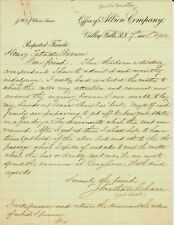
"Underground Railroad" Jonathan Chace Hand Written Letter Dated 1902 COA $489.99
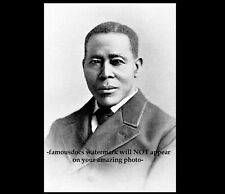
Father of the Underground Railroad PHOTO William Still Black Civil Rights Hero $5.88
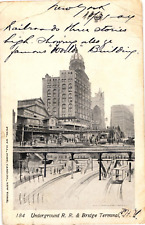
Underground Railroad & Bridge Terminal New York City NY Undivided Postcard 1904 $4.46
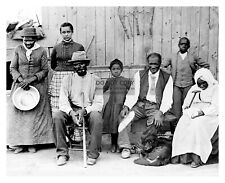
HARRIET TUBMAN UNDERGROUND RAILWAY WITH FREED SLAVES 1860s 8X10 PHOTO $8.49

sl52 Original Slide 1979 Moscow Underground Railroad Station 989a $9.25
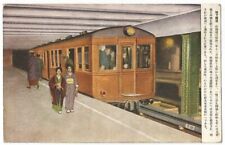
Tokyo Japan ~ Underground Subway Railroad Train c.1915 $5.99
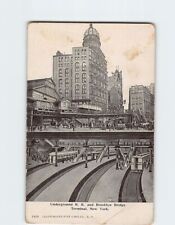
Postcard Underground Railroad and Brooklyn Bridge Terminal NYC New York USA $20.97

1941 Map of United States | Underground Railroad Map of United States | United S $34.99
|